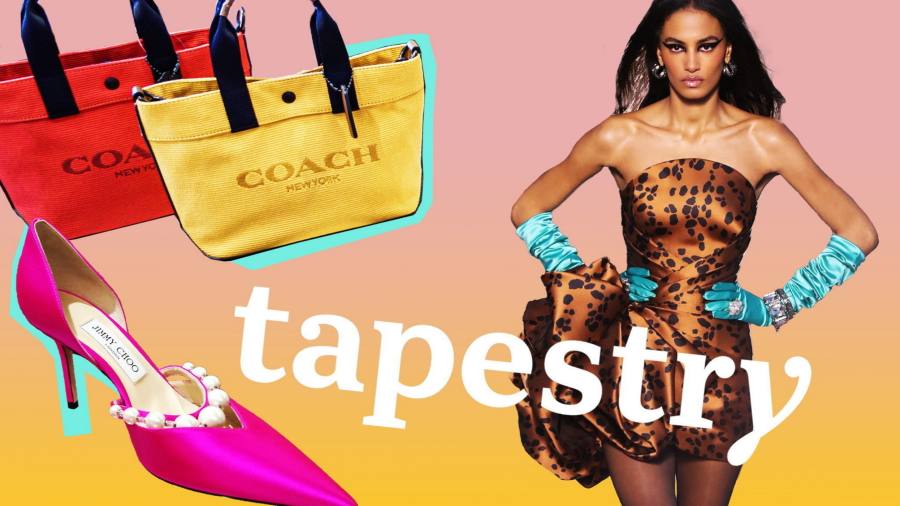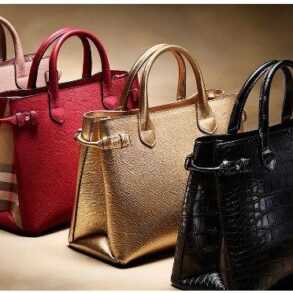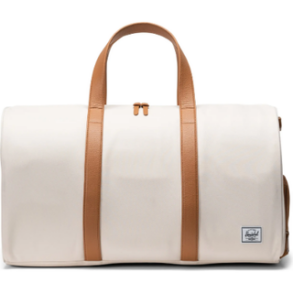
US luxury goods group Tapestry has agreed to buy Versace and Michael Kors-owner Capri Holdings for $8.5bn, in one of the biggest attempts to create a US rival to the European powerhouses LVMH and Kering.
US groups have long trailed the two fashion conglomerates, which through deft marketing and acquisitions of brands such as Christian Dior, Balenciaga and Saint Laurent, have come to dominate sales of luxury handbags, shoes and clothing.
New York-based Tapestry, which owns the Coach, Kate Spade and Stuart Weitzman brands, said it would pay $57 a share for Capri, almost 60 per cent above the average price over the past 30 days. Tapestry has secured $8bn of debt financing for the deal, which will be paid entirely in cash.
Shares in Capri, which also owns Jimmy Choo, were up almost 57 per cent in morning trading. Shares in Tapestry fell 13 per cent.
Tapestry said the six brands it would own following the acquisition had combined sales of more than $12bn and nearly $2bn of adjusted operating profits in the past fiscal year.
But even after the deal it will still be much smaller than LVMH, which had €79bn in sales in 2022, Kering with €20bn and another European rival Richemont, which had €19bn of sales. The majority of the US group’s brands also target “aspirational luxury shoppers” who are more vulnerable to recessions and other economic shocks.
“This combination expands our reach across customer segments, across geographies and product categories,” Tapestry chief executive Joanne Crevoiserat said on an investor call. “It gives us an opportunity to leverage our direct to consumer platform and importantly increases our access to the luxury consumer.”
US luxury retailers have long dreamt of creating a rival to their deep-pocketed European peers, but none have gone as far as Tapestry. A long list of New York-based designers have ended up selling to one of the European groups, including Marc Jacobs, Thom Browne, Donna Karan and Virgil Abloh’s Off-White.
These deals have not always been fruitful. Marc Jacobs struggled for years with a lack of investment and a botched restructuring, while LVMH sold off the DKNY and Donna Karan brands.
But that has not curtailed dealmaking in the luxury industry, which boomed after the pandemic but has gone through a slowdown more recently, especially in China and the US.
In July, Gucci-owner Kering agreed to buy a 30 per cent stake in Valentino from Qatar’s Mayhoola, with the option to take full control of the Italian fashion house by 2028. Kering also recently paid €3.5bn to acquire the fragrance brand Creed.
Last year, New York-based Estée Lauder beat rival bidders including Kering to buy the Tom Ford brand in a deal that valued it at $2.8bn. The transactions followed LVMH’s blockbuster acquisition of US jeweller Tiffany in 2020 for $15.8bn.
Before the Tapestry deal, shares in Capri were down 40 per cent this year after it cut its outlook for the current financial year and reported third-quarter results below its own forecasts.
Tapestry said the acquisition would expand its portfolio in the “$200bn+ global luxury market for handbags, accessories, footwear and apparel”. It is also expected to deliver more than $200mn in “cost synergies within three years”, according to chief financial officer Scott Roe. The deal is expected to close in 2024.
Additional reporting by Alexandra White in New York and Lauren Indvik in London








